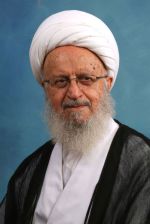Michael Kinsley and the New York Times provoked outrage this week through a critical review of Glenn Greenwald’s new book, No Place to Hide.
Kinsley raised an important question, made some sound observations, but drew a self-contradictory conclusion. He wrote:
The Snowden leaks were important — a legitimate scoop — and we might never have known about the N.S.A.’s lawbreaking if it hadn’t been for them. Most leaks from large bureaucracies are “good” leaks: no danger to national security, no harm to innocent people, information the public ought to have.
Yet he concluded that the final say over the release of government secrets is a decision that “must ultimately be made by the government.”
So, Kinsley is all in favor of “good” leaks but believes that in a democracy these need to be government-approved leaks.
That doesn’t make any sense.
Once government decides to reveal a secret, it’s no longer a secret and there is no leak.
The whole idea of whistleblowing is that it challenges specific government claims that secrecy is serving a public interest.
On one side the government is asserting that the public is being protected by its ignorance, while on the other side the whistleblower is revealing information which he or she believes the public needs to know.
The beauty of this ad hoc mechanism is that we, the public, then get to decide who has made the stronger claim: the government or the whistleblower?
Yet Kinlsey raises an important question: who can be entrusted with the decisions about which secrets should be exposed?
It seems clear, at least to me, that the private companies that own newspapers, and their employees, should not have the final say over the release of government secrets, and a free pass to make them public with no legal consequences.
Kinsley thinks we should defer to government yet fails to explain how he envisages there will ever be any more good leaks in this scenario. Are we to imagine a government that blows the whistle on itself?
On this much, Kinsley is emphatic: “Someone gets to decide, and that someone cannot be Glenn Greenwald.”
One can view that statement as an expression of antipathy towards Greenwald, yet it is also a response to the fact that when it comes to the Snowden revelations, Greenwald has been the central decision-maker.
His judgement and that of his confidants, has not gone uncontested.
This week we saw what looked suspiciously like a contest for the limelight. Julian Assange challenged The Intercept’s apparent deference to government pressure when it concealed the identity of a whole country whose cellular communications are being recorded by the NSA — “country X” as The Intercept reported, or Afghanistan as Assange claimed.
What neither side did was provide much detailed information about the process through which they had made their determination about what to conceal or reveal. That lack of transparency bore an uncanny resemblance to governments which say, trust us, we know what we’re doing.
For those of us who are not inclined to trust the government, it’s not altogether clear why we should trust the judgement of either Glenn Greenwald or Julian Assange.
In the age of Wikileaks and Snowden and the release of large volumes of classified information, it might look like whistleblowing has become a form of civil disobedience which challenges the very legitimacy of secrecy. Indeed, an argument can be made that the concept of secrecy is quickly becoming an anachronism.
Yet as things stand now, it seems worth trying to answer Kinsley’s question — who decides? — by reviving a more traditional view of the role of the whistleblower, there being no better example than that provided by Daniel Ellsberg.
Ellsberg had no legal authority to release the Pentagon Papers, but he had the moral authority. He decided that these documents must not remain secret and he was willing to face the full consequences of that decision. On June 28, 1971, as he publicly surrendered to the U.S. Attorney’s Office for the District of Massachusetts in Boston, Ellsberg said:
I felt that as an American citizen, as a responsible citizen, I could no longer cooperate in concealing this information from the American public. I did this clearly at my own jeopardy and I am prepared to answer to all the consequences of this decision.
When determining what should remain secret, Ellsberg neither deferred to the government nor entrusted that decision to a journalist.
Invariably, the whistleblower is claiming the authority to make a decision that would preferably never be left to one person. But if such an individual feels unqualified to determine what information should be made public and what should remain secret, there is also reason to question how he is going to make the determination about who instead is capable of making those decisions.
The fact that Snowden lacked the confidence to be a decision-making whistleblower doesn’t mean he should have kept quiet, but what he should have done is spread that responsibility more widely.
Should Glenn Greenwald decide? is a question that should never have needed asking.

 “Thanks for thinking about us,” says Neda, one of the six Iranians arrested for
“Thanks for thinking about us,” says Neda, one of the six Iranians arrested for  Apparently the ayatollah is unaware that the makers of the “Happy” video were laughing loudly
Apparently the ayatollah is unaware that the makers of the “Happy” video were laughing loudly 
